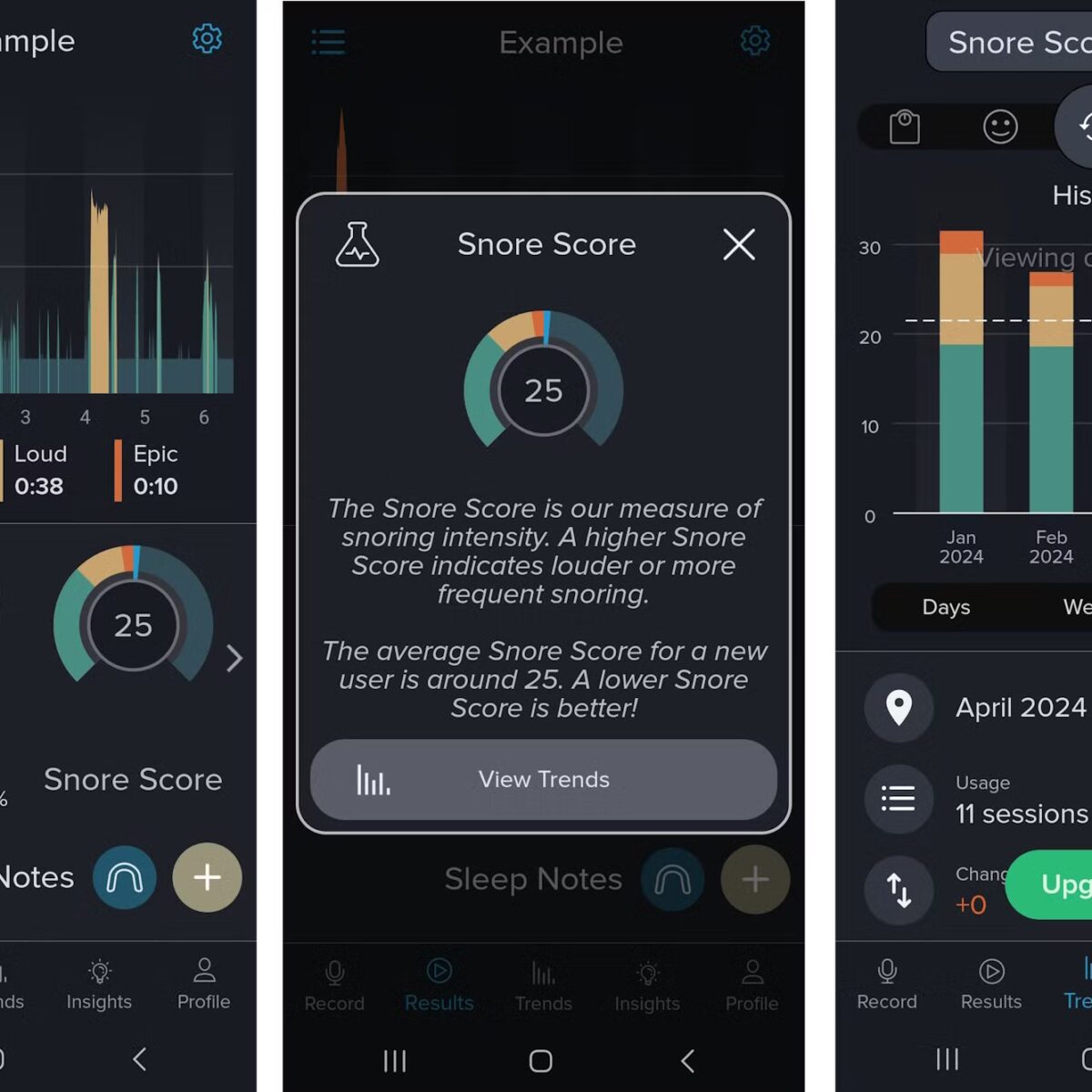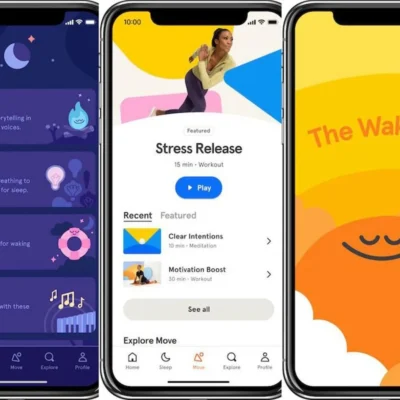Getting quality sleep is one of the most underrated factors in overall well-being—yet millions struggle with fatigue, poor rest, and low energy throughout the day. While fitness and nutrition often get the spotlight, sleep is the foundation of everything from mood and memory to weight and immunity. Luckily, there’s an entire ecosystem of apps designed to help you understand and optimize your sleep patterns and daytime energy.
Here are the top 5 apps for tracking your sleep and energy, each offering a different approach—from wearable data to smart alarms and guided wind-down routines.
1. Sleep Cycle

Available on: iOS, Android
Best For: Smart alarms and analyzing sleep stages without a wearable
Sleep Cycle uses your phone’s microphone and accelerometer to analyze your movement and breathing patterns during the night. Its standout feature is the smart alarm, which wakes you during the lightest sleep phase in a customizable window—making mornings feel less groggy.
Key Features:
- Tracks sleep quality, snoring, and movement
- Smart alarm wakes you gently during light sleep
- Sleep statistics and long-term trends
- Minimal setup—just place the phone on your nightstand or mattress
Why it’s great:
It doesn’t require any wearable and still delivers insightful data. The smart alarm feature alone can drastically improve how rested you feel each morning.
2. Oura
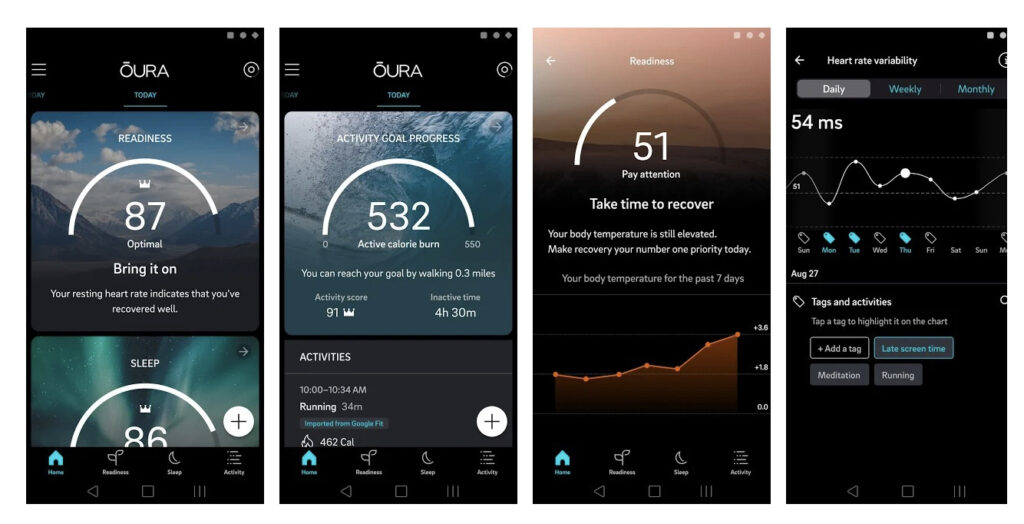
Available on: iOS, Android (requires Oura Ring)
Best For: In-depth recovery and energy tracking based on biometrics
Oura pairs with a sleek ring worn 24/7 that tracks sleep, heart rate variability (HRV), body temperature, and activity. Its Daily Readiness Score helps you decide whether to push yourself or take it easy, based on your overnight recovery data.
Key Features:
- Advanced sleep stage tracking (REM, deep, light)
- Readiness and energy scores based on HRV and temperature trends
- Guided meditations and wind-down sessions
- Long-term trends for sleep and recovery optimization
Why it’s great:
The Oura app goes beyond just sleep—it provides a full picture of your energy, recovery, and readiness, making it a favorite among athletes, biohackers, and wellness-focused users.
3. Whoop
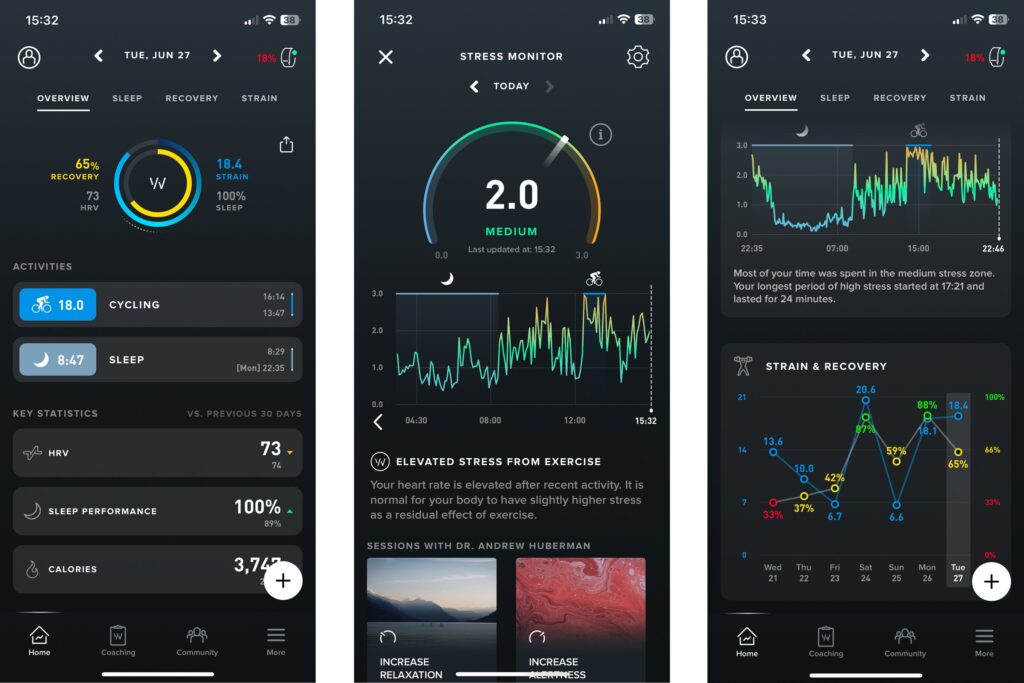
Available on: iOS, Android (requires Whoop wearable)
Best For: Performance-driven users and athletes focused on energy optimization
Unlike traditional fitness trackers, Whoop focuses entirely on recovery, strain, and sleep. You wear a Whoop strap, and the app calculates your recovery score each morning, based on sleep duration, disturbances, HRV, and resting heart rate.
Key Features:
- Real-time recovery and strain scores
- In-depth sleep tracking with coaching insights
- Journal feature to correlate behaviors with sleep outcomes
- No screen or distractions—just data and analysis
Why it’s great:
Whoop doesn’t just track data—it interprets it for you. If you want a highly personalized understanding of how your behavior affects energy and sleep, this is one of the most powerful tools available.
4. Pillow
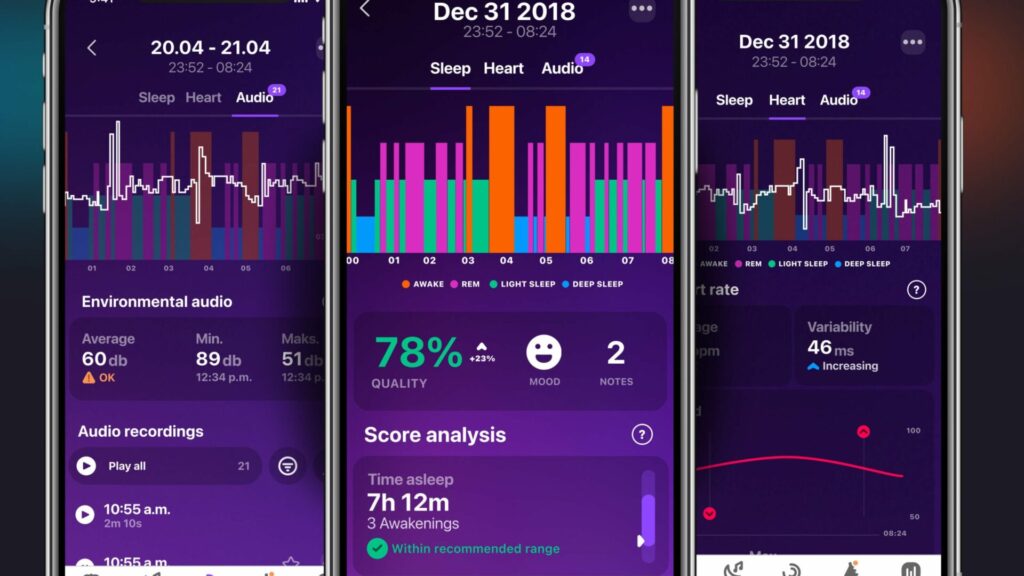
Available on: iOS, Apple Watch
Best For: Apple ecosystem users who want detailed sleep analytics
Pillow automatically detects sleep when paired with Apple Watch, or can be used manually with your iPhone. It gives you graphs of sleep stages, trends, heart rate, and even audio recordings to detect snoring or sleep talking.
Key Features:
- Sleep stage tracking using Apple Watch or iPhone sensors
- Audio recording for sleep sounds
- Sleep quality score and personalized recommendations
- Integrates with Apple Health
Why it’s great:
For iPhone and Apple Watch users, Pillow offers one of the most seamless sleep tracking experiences. It’s especially useful if you’re already using Apple Health to monitor wellness metrics.
5. Rise
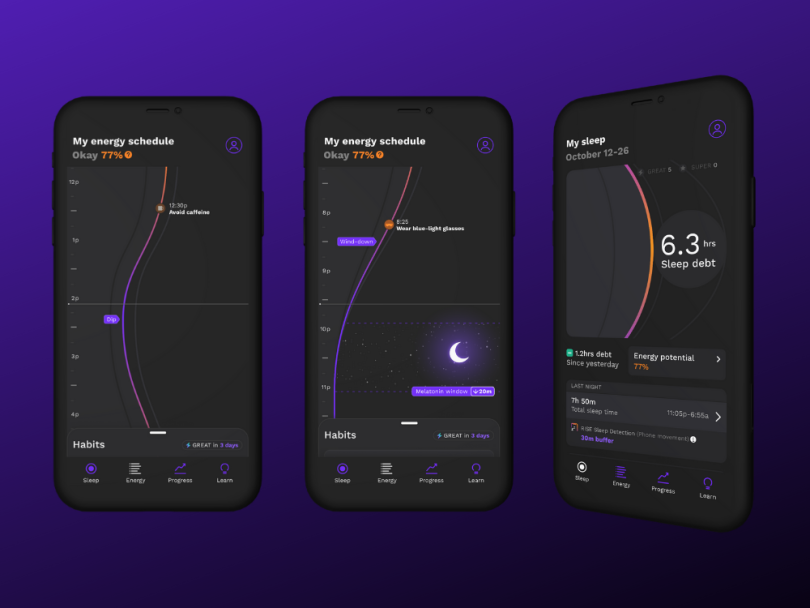
Available on: iOS, Android
Best For: Improving energy throughout the day using circadian science
Unlike traditional sleep trackers, Rise is designed to improve how you feel during the day. It calculates your energy peaks and dips based on sleep debt and circadian rhythm, helping you schedule your day around your body’s natural energy curve.
Key Features:
- Tracks sleep debt and circadian rhythm timing
- Forecasts daily energy peaks and lows
- Recommends ideal times for sleeping, eating, and working out
- Uses data from your phone or wearable (Apple Health, Oura, etc.)
Why it’s great:
Rise shifts the focus from just “how you slept” to how your sleep affects your energy and productivity. It’s perfect for optimizing daily performance—even if you didn’t sleep perfectly.
Honorable Mentions:
- AutoSleep (iOS + Apple Watch): Excellent detail and analytics, but has a steeper learning curve.
- SleepScore (iOS, Android): Great for users without wearables; uses sonar-like tech via your phone’s speakers to track breathing and movement.
Which Should You Choose?
| App | Best For | Wearable Needed? | Free Version? |
|---|---|---|---|
| Sleep Cycle | Smart alarms & ease of use | No | Yes (with ads) |
| Oura | Deep recovery + wellness tracking | Yes (Oura Ring) | No (paid hardware) |
| Whoop | Performance + recovery tracking | Yes (Whoop band) | No (membership) |
| Pillow | Apple ecosystem users | Optional | Yes (limited) |
| Rise | Optimizing energy throughout day | No | Yes (trial only) |
Final Thoughts
Sleep is too important to leave to guesswork. Whether you want to wake up feeling more refreshed, optimize your training, or simply understand why you’re tired all the time, the right app can illuminate patterns and help you make better choices.
From detailed biometrics to simple alarms, these five apps meet you wherever you are in your health journey. Try one or two, stick with what fits, and you’ll start to see that better energy really does begin at night.


